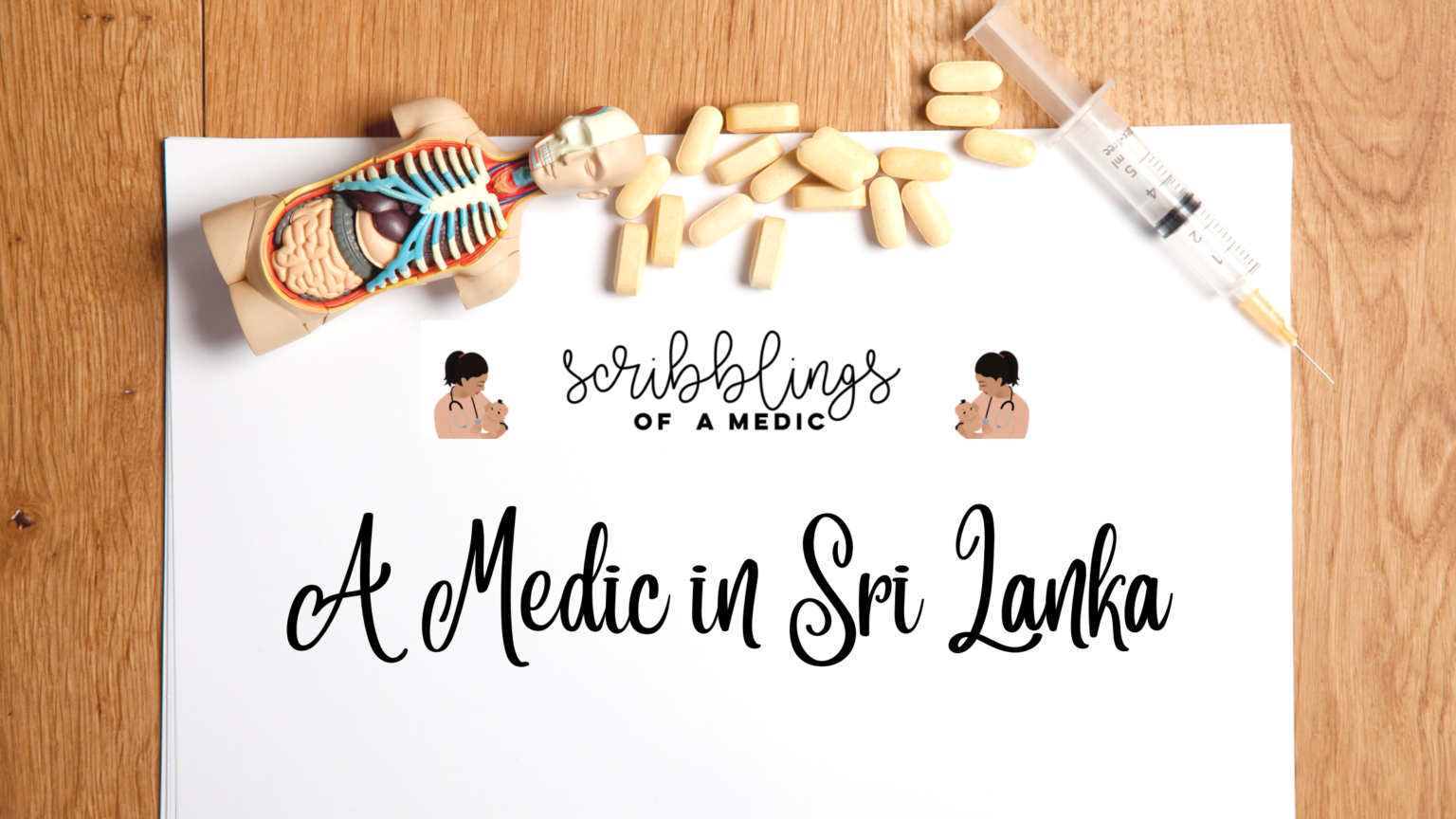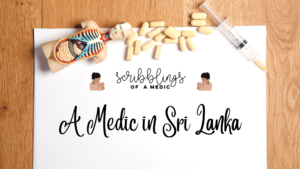So as it goes, I didn’t choose the NICU life. The NICU life chose me.
How did I get here?
In Sri Lanka, you can only choose 2 out of the main 4 medical subjects to do your internship in and each lasts 6 months. After doing paediatrics and surgery during my internship, I was only allowed to do my post-intern year (RHO) in either a paediatric or surgical subject. I really wanted to become the surgical RHO because even though both my paediatric and surgical consultants have been amazing, I loved operating and trauma management. I loved the paediatric ward too, but knew one of my closest friends was gunning for it and so let that go. The one thing I definitely knew I didn’t want was the NICU because of critical nature of the babies and the intensive shifts.
So I did become surgical RHO for approximately 4 hours UNTIL we were reshuffled again because of a problem in the Paediatric unit. And so I wound up in the NICU. Holy crap was my first reaction. I’m going to be so stressed out was my second. As an intern we had never done a rotation in the NICU, but only worked on the postnatal ward for month. I knew the NICU was way more intensive and so I was petrified. I slowly grudgingly made my way to the NICU only to find my Paediatric consultant overjoyed that I was going to end up in the paediatrics unit. Again.
Work environment
I live by the motto that ‘Everything happens for a reason’ and this could not be truer with my placement in the NICU. Yes, it’s stressful AF at work dealing with emergencies, premature babies and resuscitation with the ObGyn team breathing down your neck. However, as it is shift work duty I get more time off.
The NICU at my hospital takes babies up to 21 days of age. It can hold up to 12 babies in the acute side (only 3 on ventilators at a given time to due to the number of air sockets and only 8 babies can be kept in incubators) due to space issues. On the mother side which houses less severe babies that can be kept with their mothers, we can hold up to 8-10.
As a 2nd year doctor you normally get more time off and you don’t have to work as a 1st on call doctor anymore (i.e. an intern), but at the NICU there has to be an MO/RHO doctor at all times, 24/7. So we have day shifts (9 hours) and night shifts (15 hours). Whilst working we are responsible for the NICU, postnatal ward, babies delivered in the labour room and those delivered in the theatre.
The day shift from 7:00 am to 4:00 pm consists of first being handed over the ward and this is very important so that everyone knows what’s going on with all the patients. I do a morning ward round before and with the consultant followed by conducting ward rounds in the postnatal ward where there can be anywhere between 15 to 40 babies hoping to be discharged everyday. The postnatal ward round consists of doing a full neonatal examination for each baby (best place to get experience with murmurs) and addressing any problems the post natal ward intern may have such as no urine output, phototherapy, e.t.c. If you’re lucky to have an intern in the NICU then they can write the discharges for you or else you are on your own. All admissions must be clerked by the RHO/MO and an appropriate management plan given. I normally start my afternoon ward round by 1pm and will then sort out any concerns I have with the consultant who’ll pop in around 3pm. In the midst if there are any emergencies, I run to either the labour room or theatre for those. After each ward round there will be more forms to fill, more fluid/feed calculations to do and more doses to write down. This means I normally finish my day duties by 4 at which time I then hand over to the next RHO/MO.
The night shift is longer from 4:00 pm to 7:00 am the next day, but despite the reduced workload you’re always on pins so its never a good night sleep and through out the night you will get woken up about low blood sugars, seizures and fever spikes. Not to mention that you will have to respond to any emergencies. I do the night round around around 6pm because the consultant will come around 8/9pm. After that there’s not a whole lot of work, but you’re still on pins and needles with all the unstable babies and emergencies.
Don’t forget that you’re not just dealing with babies in the NICU, you also have to deal with the parents. Mothers are all hormonal so counsel with care. Parents of syndromic child and those with severe hypoxic ischaemic encephalopathy need to be made aware of the child’s prognosis and what to expect. It is after all critical care and so babies do die – sometimes it’s very hard to explain to a parent why the child was fine for the full 9 months and then got hypoxic because of cord prolapse or severe obstruction and died. To top it all off I have to explain this in Sinhalese
Clinics
Baby clinics are conducted once a week by 2 senior doctors and if we have any problems we show them to the consultant who joins us in the clinics after he does the ward rounds. The consultant sees all new patients and the ones we need clarifications or senior opinion on. We see about 60-even 100 babies at this clinic (all less than one year – are which they are reviewed at the Paediatric clinic. Most are pre-terms for monthly follow ups.
NICU Clerking
I have a different routine when it comes to clerking and so I’ve uploaded a video on my instagram page so do check it out to find out how I do my daily ward clerking.
Common procedures done
- Umbilical venous catheters
- Venous blood gases
- Intubation and ventilation
- Septic screen
- Lumbar punctures
Common admissions
- Prophylactic IV antibiotics for maternal dribbling or maternal pyrexia
- Respiratory distress – Transient tachypnoea of the newborn or congenital pneumonia
- Congenital heart disease
- Premature births
- Hypoglycaemia
- Seizures
- Feeding support
Being in the NICU is stressful, but you definitely do learn a lot and you start becoming a professional decision maker! Getting critical care experience is difficult and so I am now grateful that I did get this opportunity. You are always on your toe and you make about a 100 decisions every hour. I’ve learnt a hell of lot, but it can get quite stressful at times and the IV antibiotics used are always the same so it can be a little monotonous. Another downside is obviously dealing with dead babies. However on the positive, most of the babies survive, some are so cute and chubs – a lot of fun to cuddle. I hope this gives anyone hoping to do paediatrics or get involved in NICU care specifically a little more insight into what’s it’s like. If I’ve forgotten to address anything please do let me know and as always if you have any questions send me a message.





